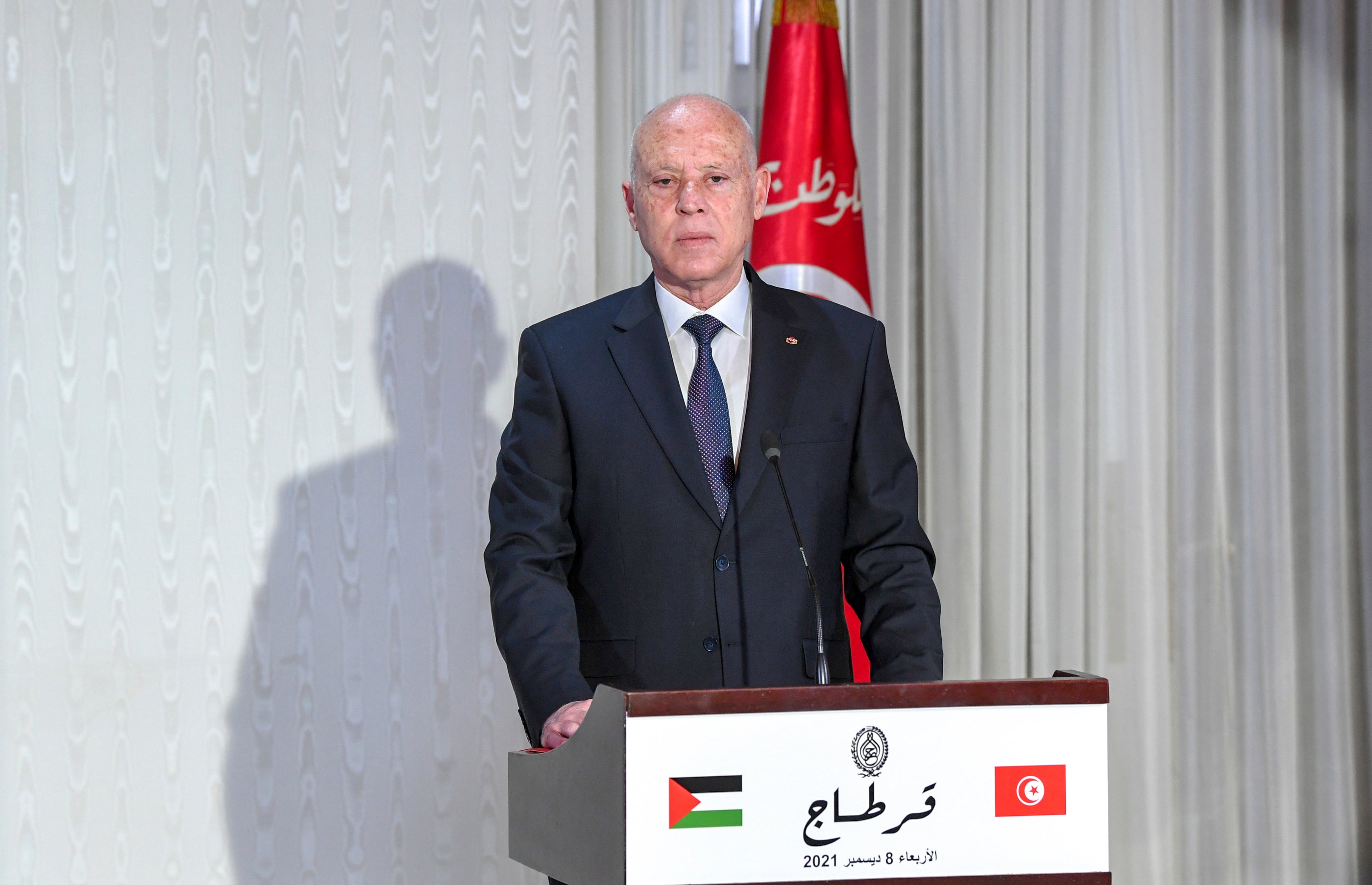Tunisian president announces referendum, future elections
Tunisian President Kais Saied has prolonged the suspension of parliament and announced a national referendum, almost five months after dismissing his government and granting himself sweeping powers

Your support helps us to tell the story
From reproductive rights to climate change to Big Tech, The Independent is on the ground when the story is developing. Whether it's investigating the financials of Elon Musk's pro-Trump PAC or producing our latest documentary, 'The A Word', which shines a light on the American women fighting for reproductive rights, we know how important it is to parse out the facts from the messaging.
At such a critical moment in US history, we need reporters on the ground. Your donation allows us to keep sending journalists to speak to both sides of the story.
The Independent is trusted by Americans across the entire political spectrum. And unlike many other quality news outlets, we choose not to lock Americans out of our reporting and analysis with paywalls. We believe quality journalism should be available to everyone, paid for by those who can afford it.
Your support makes all the difference.Tunisian President Kais Saied has prolonged the suspension of parliament and announced a national referendum, almost five months after dismissing his government and granting himself sweeping powers.
The announcement, he said, was an answer to many Tunisians’ demand for political change.
“To those who are calling for a return (to the old system): we will never go back to what came before,” said Saied.
In a televised speech Monday evening, Saied unveiled his plans to organize a nationwide, popular consultation, that will be held both online and offline from January to March 2022.
The consultation will then be reviewed by a committee and will form the basis for a national referendum on political reform that will take place on July 25, 2022. The referendum will be held across Tunisia and will reflect “the will of the people,” said Saied.
July 25 is both Tunisia’s Republic Day and when Saied froze parliament, dismissed his government and took on executive powers this summer. In September, Saied partially suspended the country’s post-revolutionary constitution and gave himself the power to rule by decree, raising fears of democratic backsliding. Critics have called Saied’s measures a “coup d’etat”.
In Monday’s speech, Saied also extended the suspension of Tunisia’s parliament until the next legislative elections, planned for Dec. 17, 2022. The elections will be held in the framework of the referendum results.
Saied’s timeline marks symbolic dates in the North African nation’s calendar.
Since July, Saied changed the anniversary date of Tunisia’s 2011 revolution – when former autocratic ruler Zine el Abidine Ben Ali fled the country – to Dec. 17 to mark the day in 2010 when fruit seller Mohammed Bouazzi set himself alight, setting off the series of uprisings in Tunisia that led to what is now known as the Arab Spring.
Saied has frequently said Tunisia’s revolution ended in January 2011, usurped by “corrupt” and “self-serving” political forces that redirected Tunisia’s democratic path.
Saied announced his exceptional measures following antigovernment protests, and have proven widely popular with a Tunisian public fatigued by economic decline and years of political deadlock which have failed to answer some of the key demands of the 2011 revolution.
—
Bouazza Ben Bouazza contributed to this report in Tunis